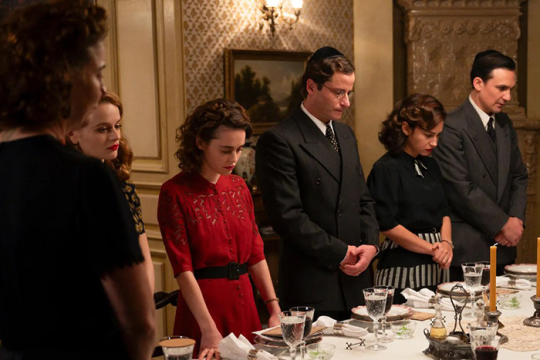
The cost of diapers, the best stroller on the market, the most popular Disney movie. What do these things have to do with Judaism and Jewish life? Nothing – and everything, when you’re struggling to conceive a child.
I remember all too well the pangs I felt each time I left a friend’s house after a meal in a sukkah, after a Shabbat dinner in New York City, or the weekend barbeque – times when there was nothing I could think of aside from these child-related topics, yet I did not have a child. Because of my own prior surgeries and the recovery involved, it took time to be mentally and physically ready (and able) to have children, and as much as I tried, I could not speed up the process.
I began to question my belief in God and my connection to my community. If there was a God, was there an intended purpose to this struggle for me? And why? Would I ever feel “normal” again?
Because I could not join my friends as they entered the next stage of their Jewish practice – of passing on the tradition and celebrating Judaism through the eyes of a child – I perceived that I was abandoned by my community and did not have an avenue into accessing spiritual support in my isolated struggle.
One fall day, I was touring Mayyim Hayyim, a Boston-based pluralistic mikvah (ritual bath) while hosting a group of Israelis. I saw a sign that said something like, “Are you struggling with fertility? We are, too. Email Rachamim Boston at...” I felt relief to know I wasn’t alone on this journey.
When I emailed the group, however, I learned that it had disbanded because all its members had gotten pregnant. My heart sank; I thought I had been so close to finding a communal and spiritual home on this challenging journey. And yet, the next sentence read, “I'd be happy to coordinate connections between other women in the community who have indicated interest in the group.”
That one line changed my entire Jewish emotional healing experience on my fertility journey.
Through that connection, I met another Jewish communal professional who was struggling to build her family. We supported each other through miscarriage, IVF, countless difficult questions around family-building, and painful holiday celebrations, such as Hanukkah without a little one and Purim without costumes. Through our conversations, we figured out how to validate our paths to parenting and recognize the amazing work we were doing to get there.
Having another community member support me on my struggle enabled me to rebuild my connection to the Jewish community, instilling in me a revived hope in spiritual healing and in finding comfort through Judaism.
In time, I became more open beyond this chevruta (paired learning) experience about my struggles. I shared more with friends and began to open up my world – and this enabled me to heal.
I stopped isolating myself in shame – and it only took one person to help me validate my own trajectory and begin sharing. It merely takes that: the welcoming, outstretched arm of a community member to profoundly change the course of someone who is struggling.
In his book Everyday Holiness, Alan Morinis translates the word “compassion” as rachamim in Hebrew. Rachamim, he explains, is derived from the Hebrew word rechem, which means “womb” – and we can best model compassion for others based on the sort of compassion that mothers traditionally have for their babies.
As a community, we need to create a womb for members who are struggling to build their families. How can we bring compassion, support, healing, and growth to someone, so they feel more confident at their next choice and see more options available to them in their journey? What are the ideal surroundings to help someone open up about their struggle, so we know enough in order to offer rachamim? How can we acknowledge the fertility struggle within our prayer services and in our community literature?
You, too, can change the life of someone struggling on a fertility journey. You can:
- assist them in making connections;
- bring them meals;
- show interest in their well-being;
- help them find healing rituals and organized groups; and
- sit with them and simply allow them to talk as you listen
As my story illustrates, one small action can reboot someone to reconnect.
As a Jewish community, we have the tools (and also, I would suggest, the obligation) to support those struggling on fertility journeys, and our charge is to apply those tools to the family-building stage.
I hope you will join this effort through your own daily interactions or by getting involved in the national effort to enable our community to provide solace and comfort to those trying to achieve their family-building dream.
Related Posts

“We Were the Lucky Ones:” Bringing The Holocaust Out of History Books and Into Our Homes

Harnessing the Power of our Mothers Around the Seder Table


